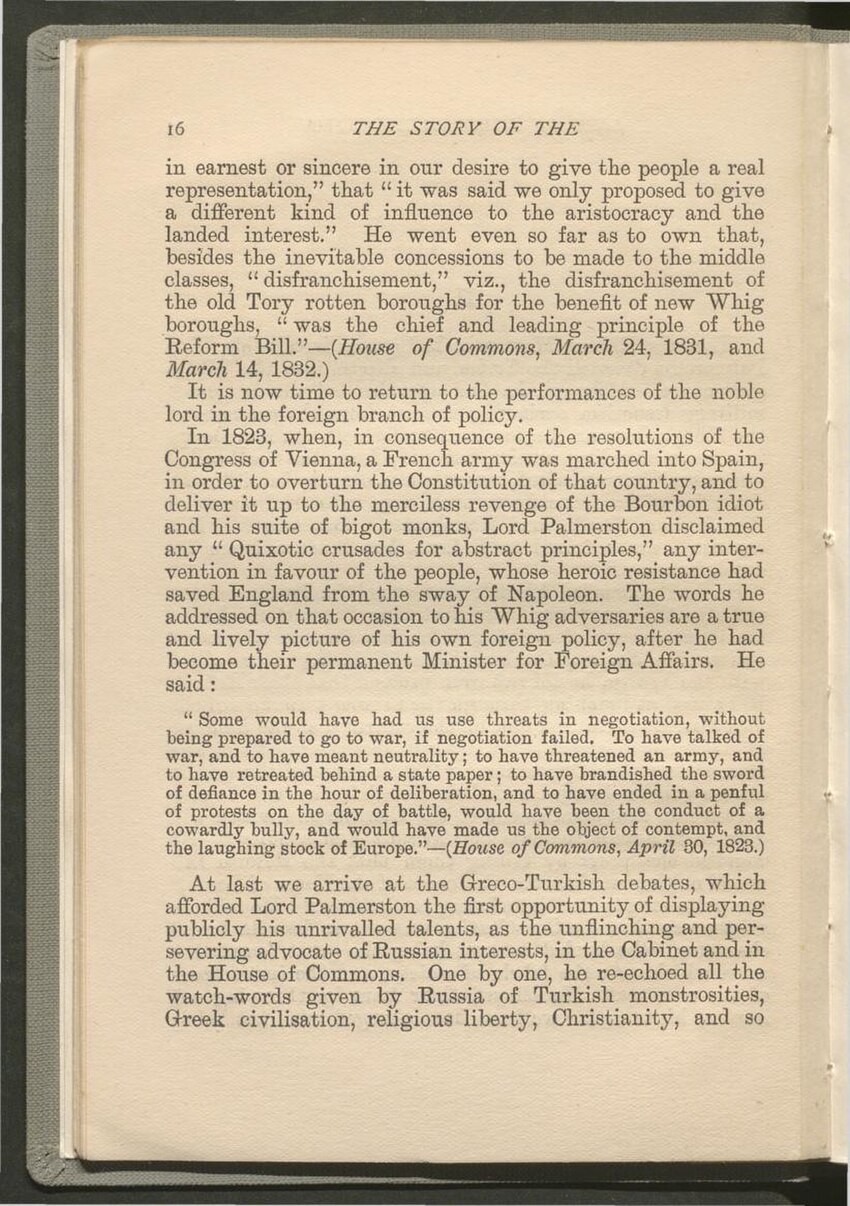in earnest or sincere in our desire to give the people a real representation," that "it was said we only proposed to give a different kind of influence to the aristocracy and the landed interest." He went even so far as to own that, besides the inevitable concessions to be made to the middle classes, "disfranchisement," viz., the disfranchisement of the old Tory rotten boroughs for the benefit of new Whig boroughs, "was the chief and leading principle of the Reform Bill."—(House of Commons, March 24, 1831, and March 14, 1832.)
It is now time to return to the performances of the noble lord in the foreign branch of policy.
In 1823, when, in consequence of the resolutions of the Congress of Vienna, a French army was marched into Spain, in order to overturn the Constitution of that country, and to deliver it up to the merciless revenge of the Bourbon idiot and his suite of bigot monks, Lord Palmerston disclaimed any "Quixotic crusades for abstract principles," any intervention in favour of the people, whose heroic resistance had saved England from the sway of Napoleon. The words he addressed on that occasion to his Whig adversaries are a true and lively picture of his own foreign policy, after he had become their permanent Minister for Foreign Affairs. He said:
"Some would have had us use threats in negotiation, without being prepared to go to war, if negotiation failed. To have talked of war, and to have meant neutrality; to have threatened an army, and to have retreated behind a state paper; to have brandished the sword of defiance in the hour of deliberation, and to have ended in a penful of protests on the day of battle, would have been the conduct of a cowardly bully, and would have made us the object of contempt, and the laughing stock of Europe."—(House of Commons, April 30, 1823.)
At last we arrive at the Greco-Turkish debates, which afforded Lord Palmerston the first opportunity of displaying publicly his unrivalled talents, as the unflinching and persevering advocate of Russian interests, in the Cabinet and in the House of Commons. One by one, he re-echoed all the watch-words given by Russia of Turkish monstrosities, Greek civilisation, religious liberty, Christianity, and so
